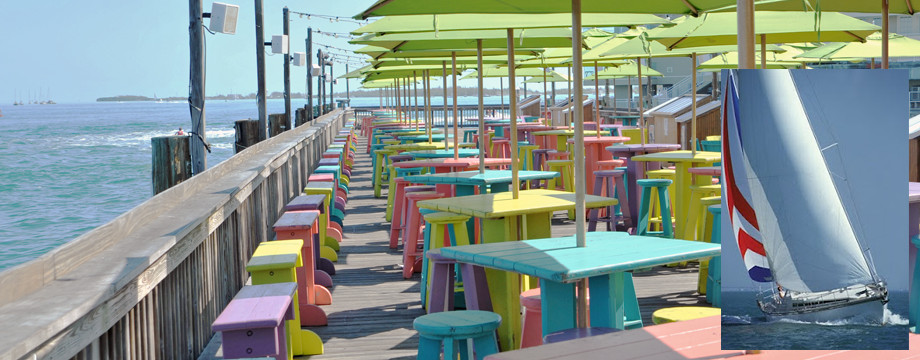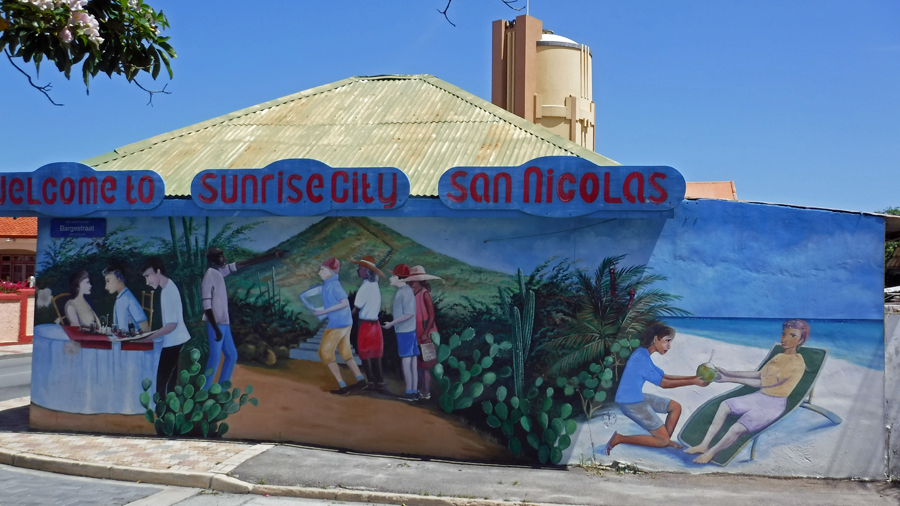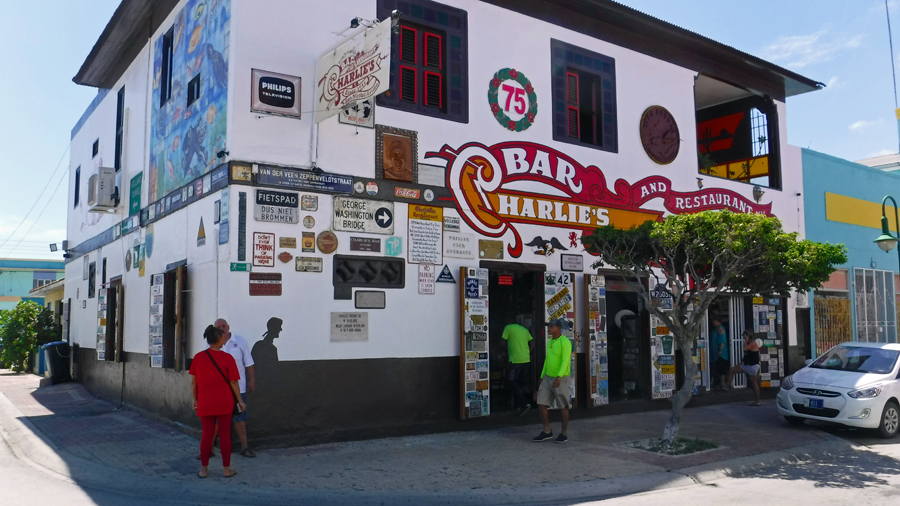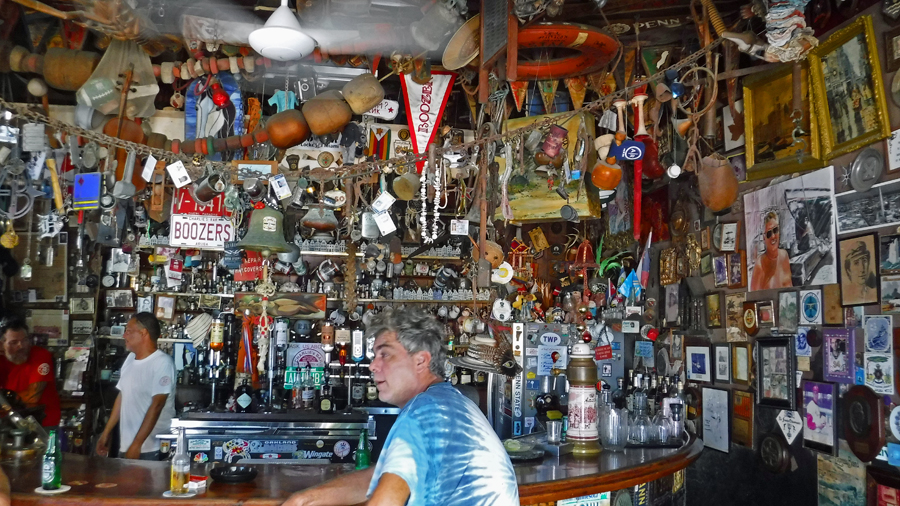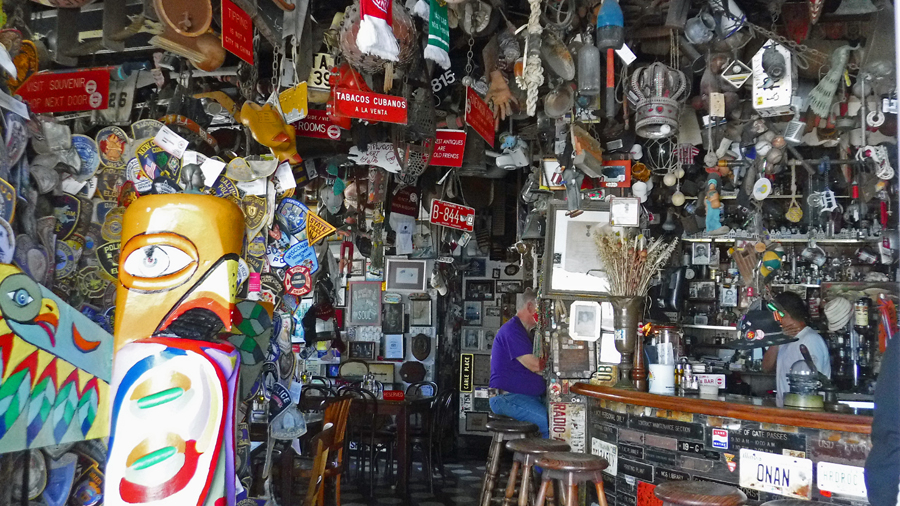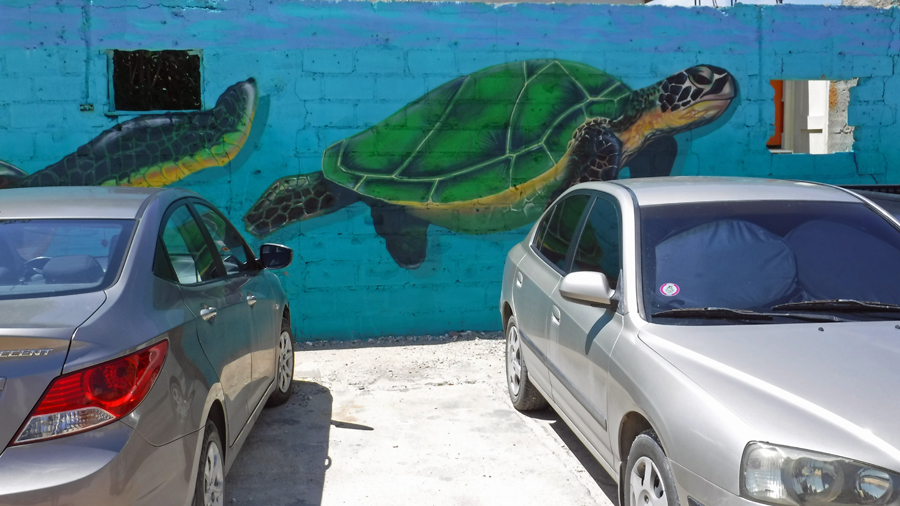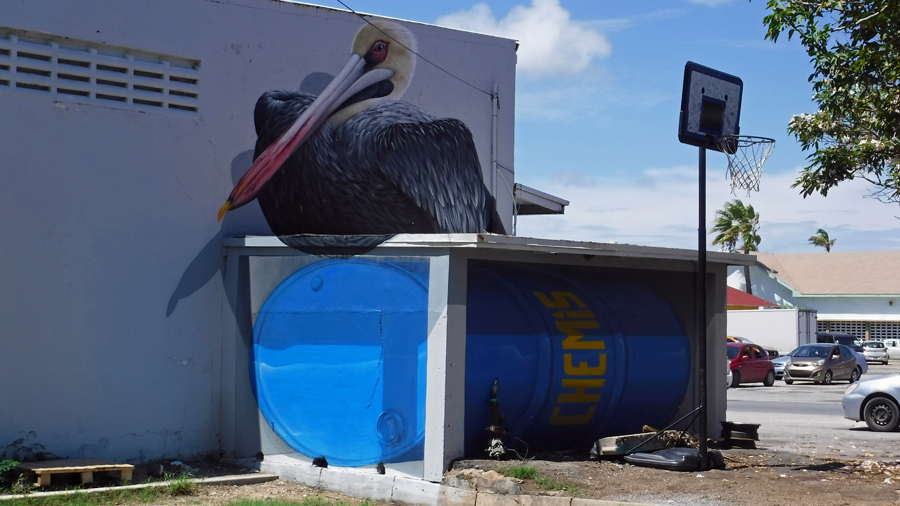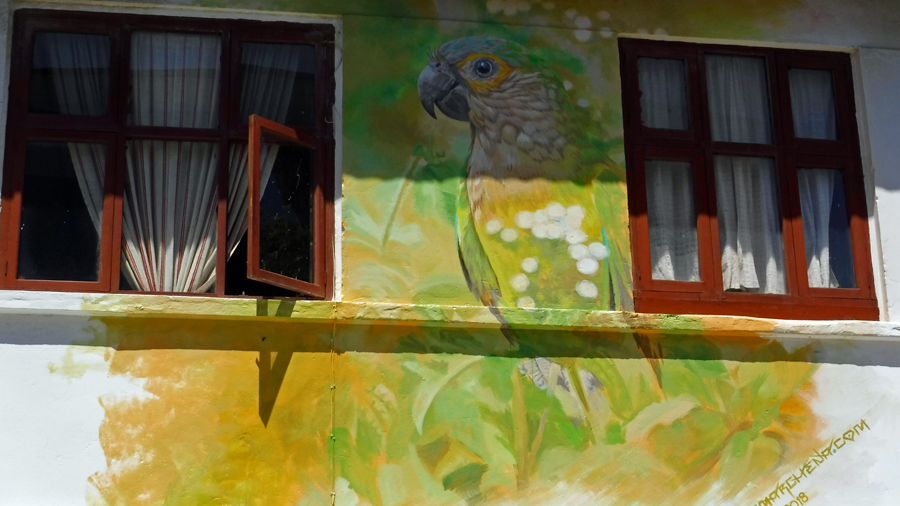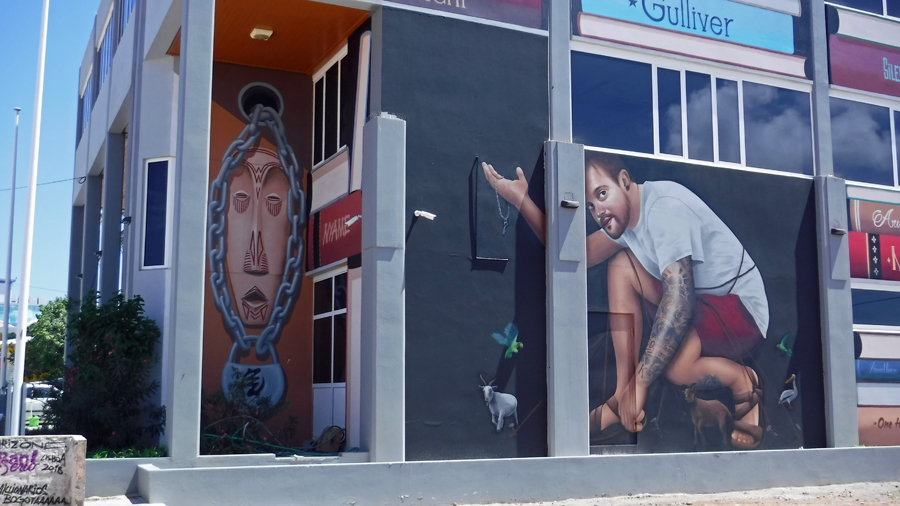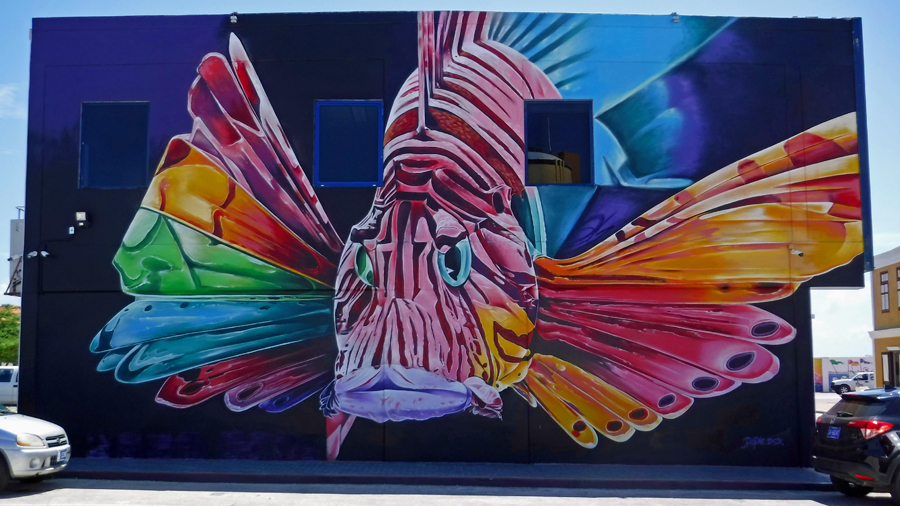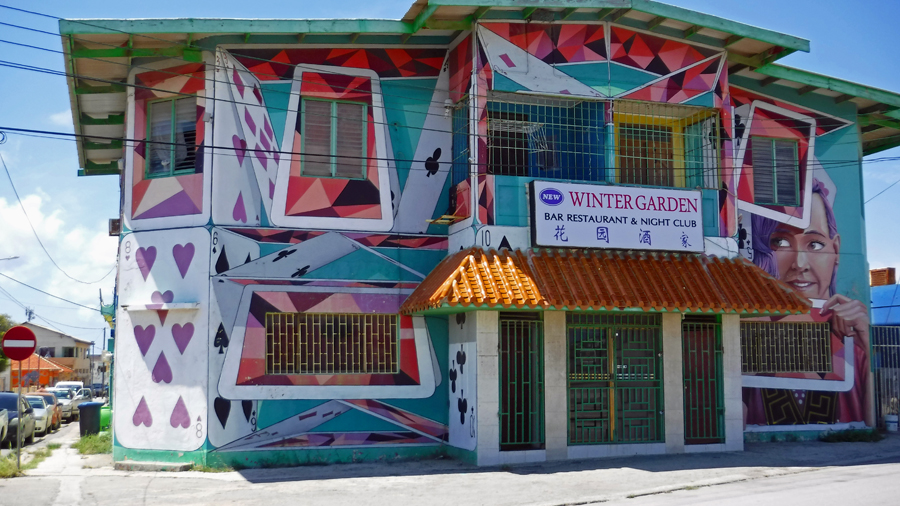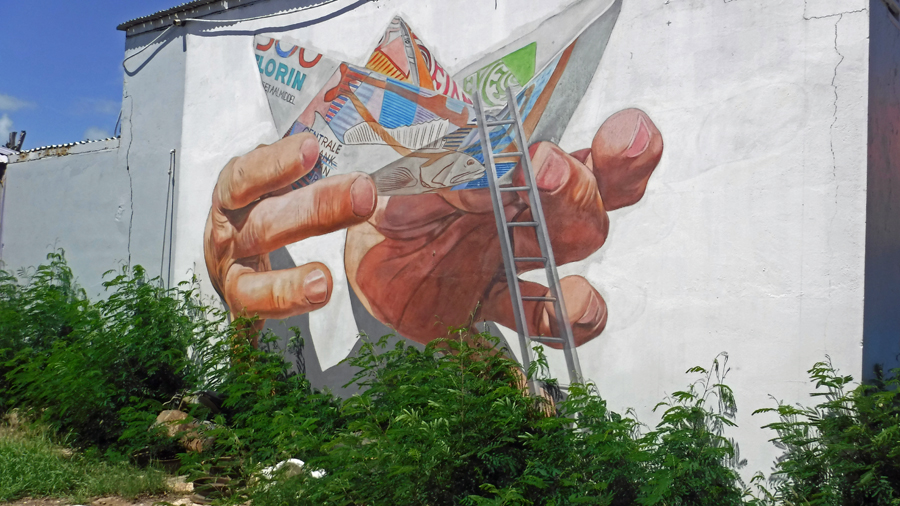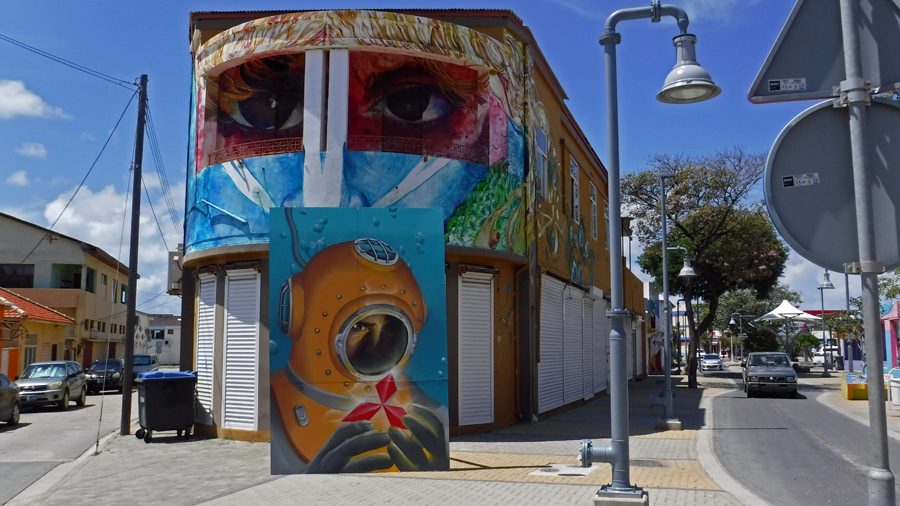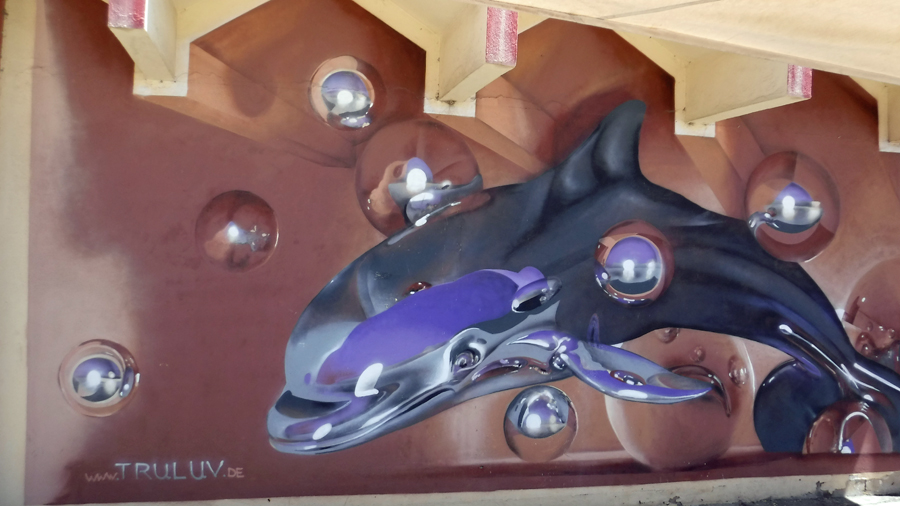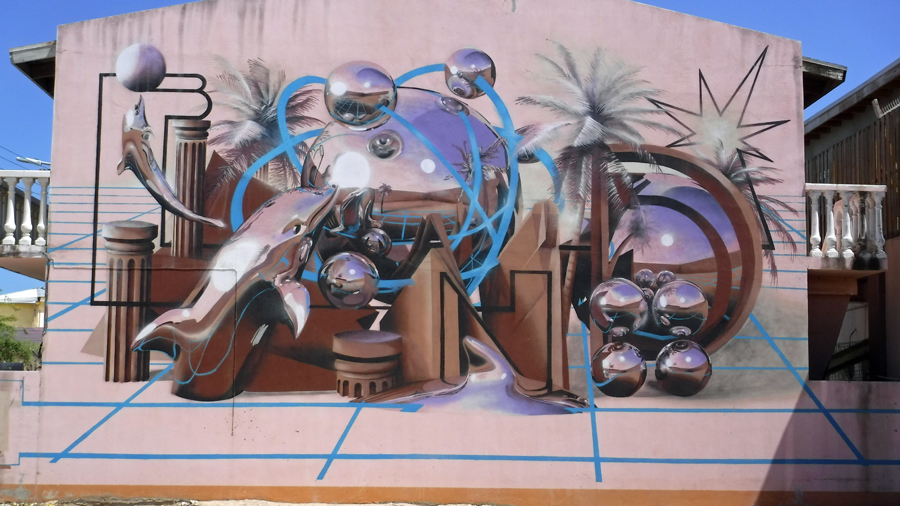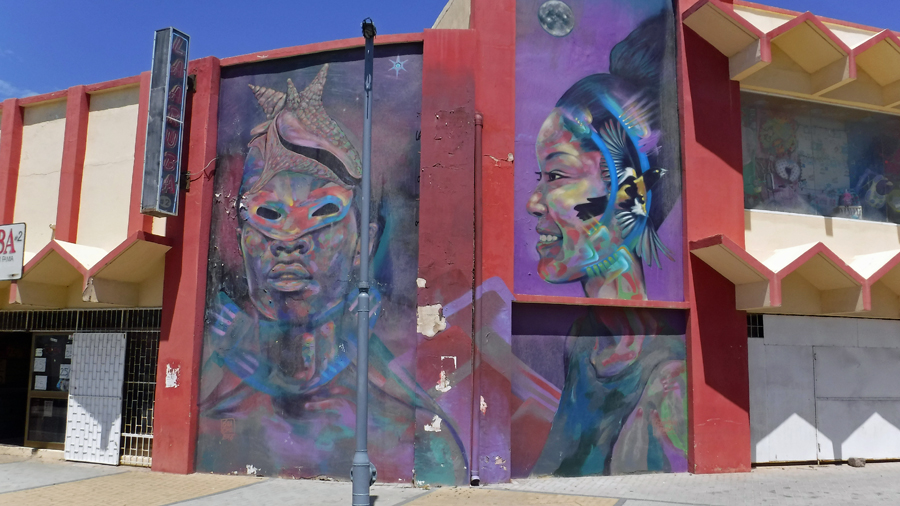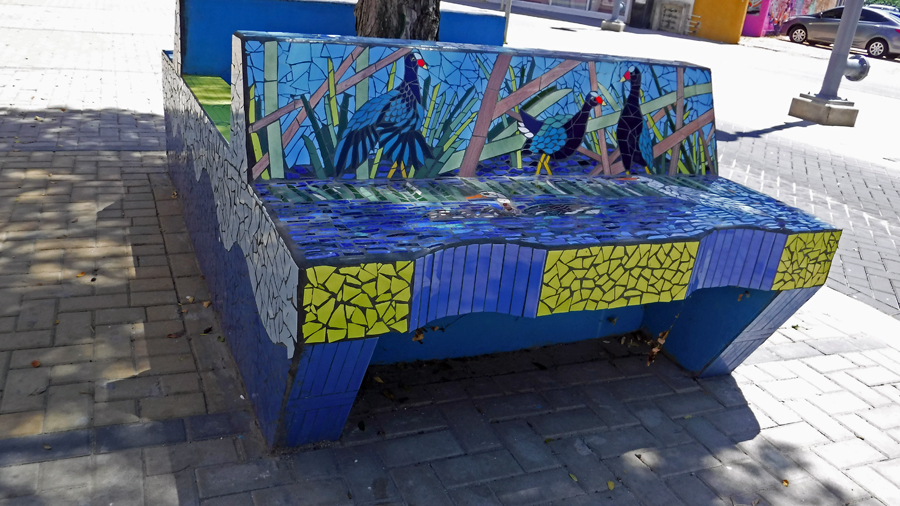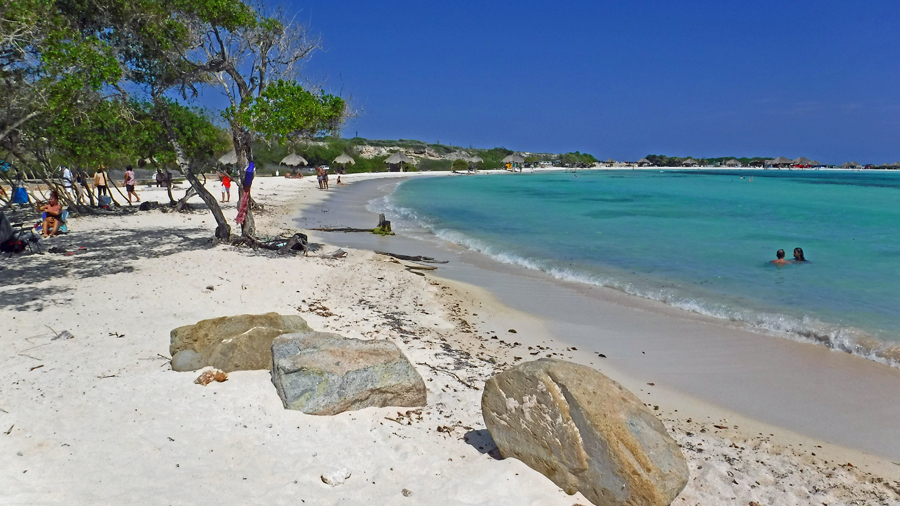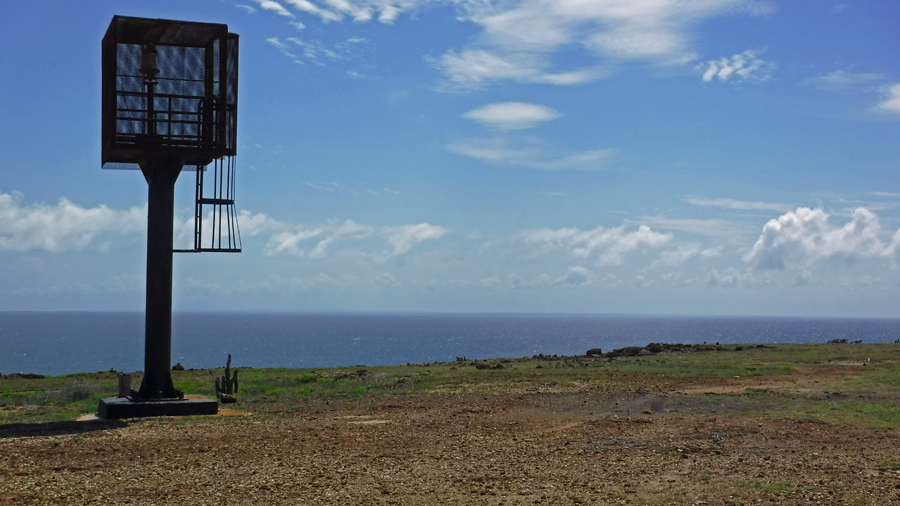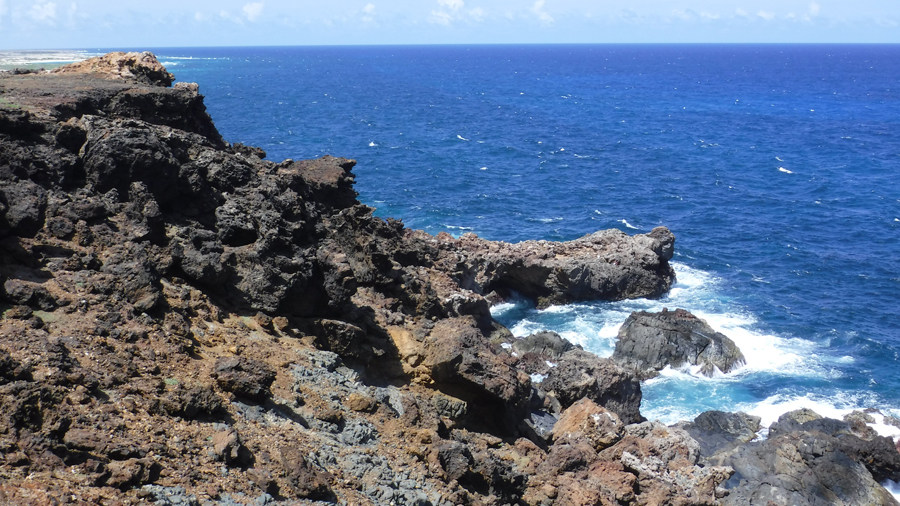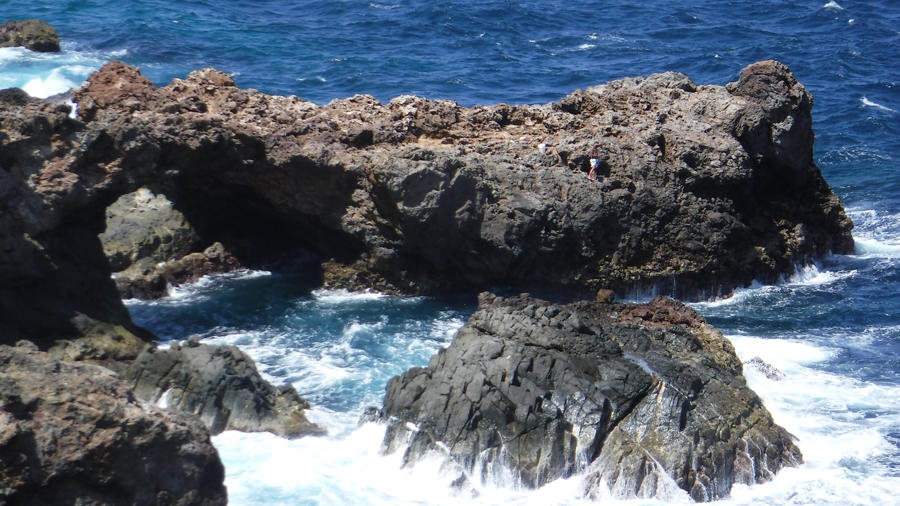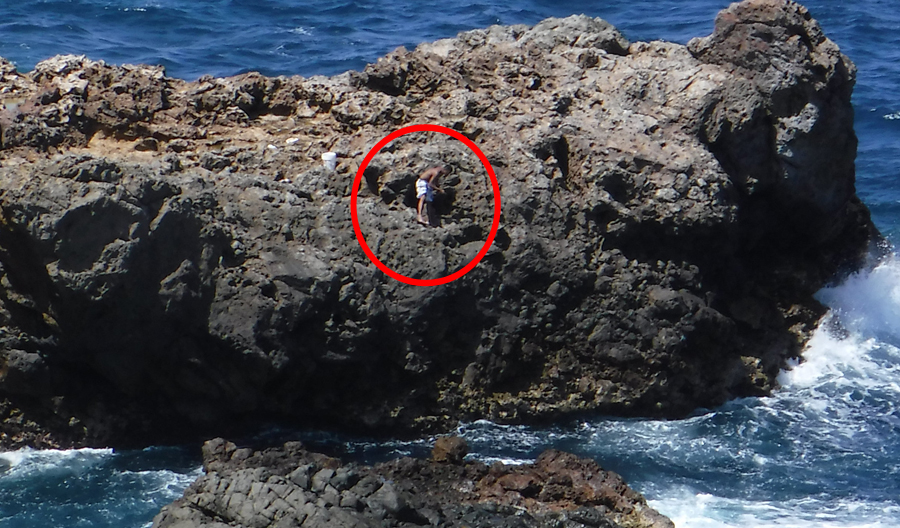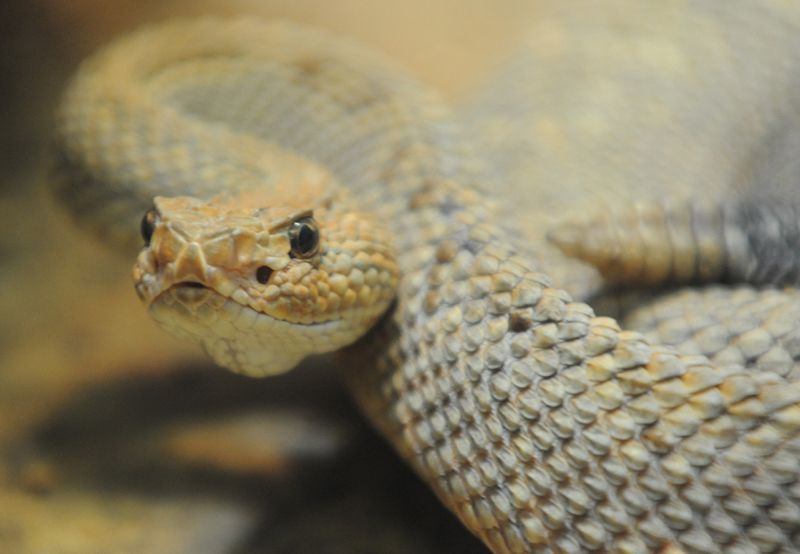Cindy is the Entertainment Director aboard Cream Puff. When we arrive at a new location she will gather all the tourist information from the internet and local kiosks or offices. She will then put together a plan of places we should visit and tourist traps to skip. This task is often much harder to do on the smaller islands than you would imagine. Many of the islands really lack a good tourism internet site so Cindy will read travel blogs or cruisers blogs to get a sense of “must dos” while visiting. Aruba has a tremendous amount of tourism so the information is readily available here. We have a plan.
While Cindy is busy searching for stuff for us to do, I am shopping for a deal on a rental car. More often than not, the better car deals are from small local companies away from the airports. Being located away from the airport, the companies can avoid the steep taxes aimed toward the tourists. We have also found many of the local companies are willing to pick us up and drop us off at the boat when the rental is over. Aruba proved to be a little different and the best deal I could muster was with Avis at the airport. Avis has no option to bum a ride so this presented another challenge, how to get to the airport without having to pay for a taxi. Paying for a taxi to and fro kind of defeats getting a great rental rate.
It is not like being in Europe or the USA where you can just go to Google maps, input two destinations and get directions including the bus routes. The bus feature doesn’t work on Aruba. After digging a little, we discovered there are two types of buses on Aruba: big buses that are very cleverly called Arubus and small buses. The big buses run on limited routes with specific stops and are similar to a bus service one would expect to find in most small cities. The small buses are minivans and will stop and pick up pretty much anywhere you desire along a route. For a small additional fee, they will drop passengers off-route. The small buses run more widespread routes and are more frequent than the big bus. These small buses are marked by a small sign in the front window that simply says, “Bus”. There are no numbers or other markings and they are not caught at the regular Arubus bus station.
We first became familiar with the mini-bus system while staying on Grenada so we went with this option. We asked a couple of local people where we needed to go to catch the small bus. We were pleased to find out just two blocks from us is a major stop. We made our way to the corner of Wilhelminastraat and Schoolstraat and found the mini-buses lined up. Once we found the buses, the next challenge was finding the right one. This is where any local who can speak English is willing to jump in and help. A really nice man with perfect English helped us board the correct bus and we were off to the airport to get the car. The fare for both of us was 6 Arubian Florins about US$3 (2.9€). The taxi fare would have been about US$15 plus tip. This may not seem like a lot of savings but now we’ve worked out the mini-bus system, we will hop on and off these rather than taxis saving us a lot on money while on the island.
In a moment of spontaneity, leaving the airport we decided to go south. This is in the opposite direction from all the touristy spots and large hotels. Throwing all of Cindy’s painstaking research out the window for the day, we just decided to follow the main road taking in the sights. In about 20 minutes the road ended at the town of San Nicolas. Roads on islands have a habit of ending. I don’t know why I am always surprised when we run out of road. Quite simply, we reached the end of the island. Aruba is not a very large island. It is less than 20 miles long (30 km). It doesn’t take long to reach the end. We found ourselves in the town of San Nicolas.
San Nicolas was barely mentioned in the tourist guides. However, it turned out to be a really cool spot. Mentioned is Charlie’s Bar but little else. Charlie’s is a popular watering hole and a spot for visitors to leave behind a personal memento. The collection has grown over the years and now just about every square inch of the bar is covered with international memorabilia.
We are so glad we decided to ignore the tourist guides and freestyle the afternoon. We accidentally discover a gem of a little town. The buildings sport some of the fanciest murals we have ever seen. The incredibly creative works of art are everywhere and we decided to park the car and take a nice walkabout. The art is fantastic. Here are just a few.
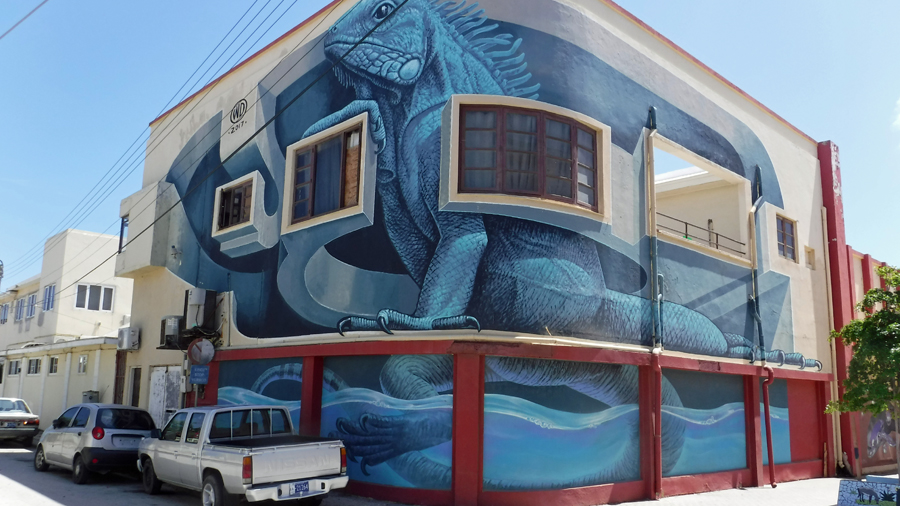
One of our favorites – check out the iguanas pose on the window and keep in mind the walls are flat and the windows are not boxed or protruding away from the wall
The beach near San Nicolas is called Baby Beach located just outside of the town and is favored by the locals. Perhaps the fact this beach is a local favorite is why it is not in the tourists guides.
Just outside of town is the Seroe Colorado Lighthouse. This is not by any means an old classic tall cylinder shaped building. It is a new un-manned station and serves as a navigation aid for ship to avoid hitting the island and the dangerous rocks in the area. We saw the light when we arrived at Aruba since it was in the wee hours of the morning. The hill upon which the light is located is one of the highest points on the tip and the views are incredible. One a clear day, Venezuela can been seen to the south as it is located just 18 miles (30 km) away.
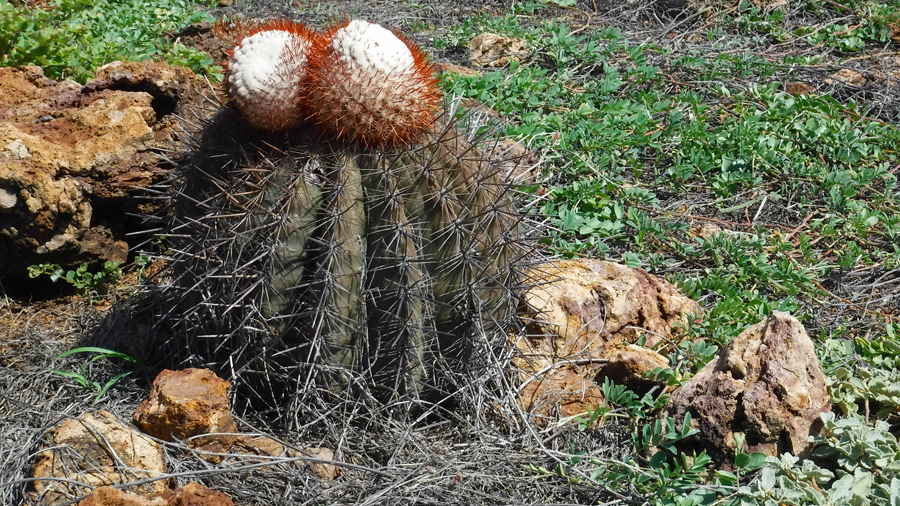
Melocactus macracanthos – We see our very first Turks Cap Cactus – These funny little plants grow about a foot high
The southern end of the island is very arid and rocky much like a desert. It looks a little bit like Texas. And like Texas, there are snakes. However, snakes are extremely rare on Aruba. The snake’s habitat has slowly been taken over by development. This area is home to the world’s rarest rattle snake, the Aruba Rattle Snake.
